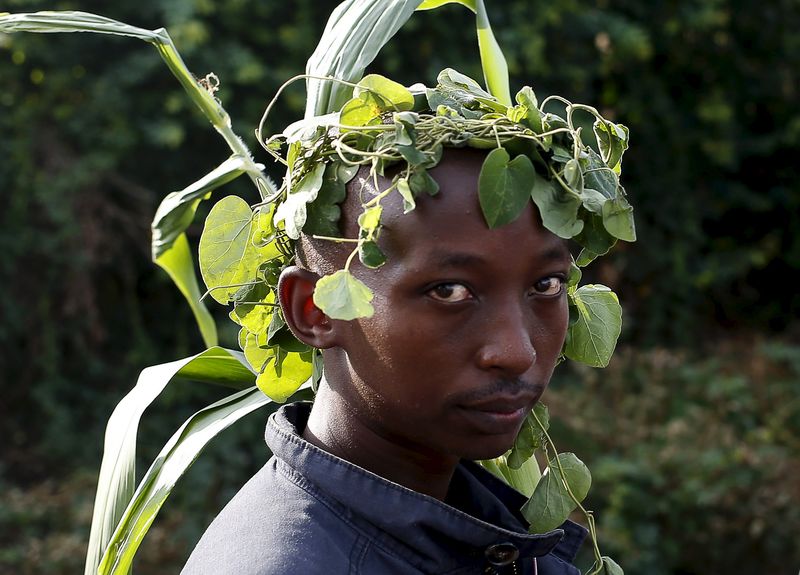By Patrick Nduwimana and Robert-Jan Bartunek
BUJUMBURA/BRUSSELS (Reuters) - Belgium said on Monday it had suspended some aid to Burundi, ratcheting up international pressure on the donor-reliant African nation over protests against the president's quest for a third term.
Belgium, the first donor to take such action, said it was halting aid earmarked to support elections and the police, because the conditions were no longer right for the poll. Other donors could follow suit, a diplomat said.
At least 19 people have been killed in more than two weeks of protests against Pierre Nkurunziza's election bid, which critics say violates a two-term limit set out in the constitution and a peace deal that ended a civil war in 2005.
About 300 people protested on Monday in Musaga, a district of the capital that has seen several protests, a Reuters witness said.
"Let us pass into Bujumbura city to tell Nkurunziza that he is not allowed to run for a third term," protesters shouted, trying to move to the city centre. They were blocked by police.
A constitutional court has ruled the president can run again because his first term, when he was picked by parliament not elected by popular vote, does not count. Protesters say the court is biased.
Former colonial ruler Belgium had pledged 4 million euros (3 million pounds) to help organise elections, including a May 26 parliamentary poll and a presidential vote on June 26. Half of the cash has already been disbursed.
"Deputy Prime Minister Alexander De Croo believes that in the current circumstances the payment of the remaining 2 million (euros) can only be put on hold," the Ministry of Development Cooperation said in a statement.
It said a European electoral observation mission concluded last week that conditions did not allow for candidates to campaign. Belgium would also pull out of 5 million euro police cooperation deal, funded jointly with the Netherlands, it said.
A senior European diplomat told Reuters the European Union and other European states, such as the Netherlands, could follow Belium's example.
Europe is the biggest donor to Burundi, one of the poorest countries in the world. Aid accounts for about half its budget. Diplomats have said any aid cuts would be targeted to avoid hurting the population.
A Burundi government spokesman had no immediate comment on Belgium's announcement.
The violence has drawn increasingly strong donor rebukes.
The United States, which gives about $80 million a year in equipment and training to the army, on Friday threatened sanctions on anyone involved in violence against protesters.
African states meet on Wednesday in Tanzania to discuss the crisis that has stoked tensions in a region with a history of ethnic conflict. More than 50,000 people have fled to Rwanda and other neighbouring states, many fearing a flare up of ethnic violence.
Burundi's 12-year civil war pitted rebel groups of the Hutu majority, one of them led by Nkurunziza, against the Tutsi-led army. The military, now a mixed force, has been seeking to restore calm.
Protests have largely been limited to the city, reports of protests elsewhere have not been independently confirmed. Nkurunziza's main support base is in the countryside in the overwhelmingly agrarian economy.

Police have fired tear gas, water cannon and, say demonstrators, live rounds. Police deny shooting and say demonstrators have orchestrated violence.
(Additional reporting and writing by Edmund Blair in Nairobi; Editing by Andrew Heavens)